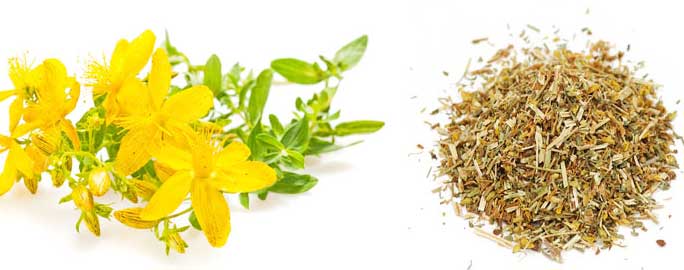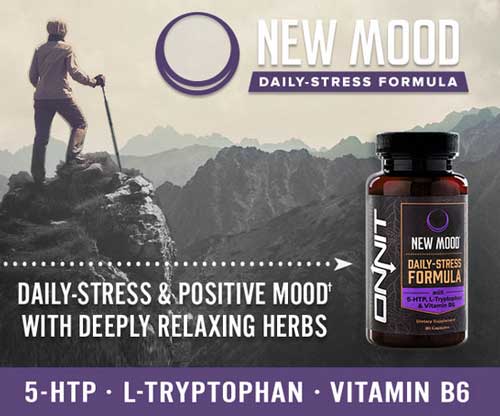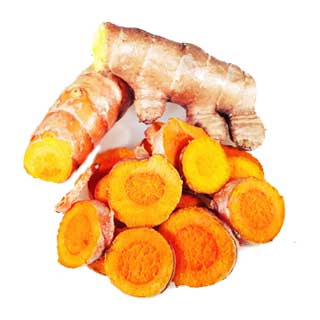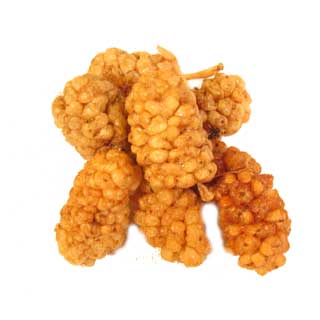updated: 1-31-2020
Background on St. John’s wort
St. John’s wort (Hypericum perforatum) is a small herb with yellow flowers. Originally native to Europe, this herb now grows wild across most of the temperate regions of the world. You can find St. John’s wort growing happily along roadsides in the United States.
This plant has gained in popularity due to its use for depression and anxiety.
The medicinal use of this plant dates back to the ancient Greeks.
Hippocrates, the renowned Greek physician hailed as the Father of Western Medicine, first recorded the the use of St. John’s wort flowers as a treatment for various “nervous disorders”.
The plant later received its common name St. John’s wort because its flowers bloom on June 24, the birthday of St. John the Baptist. The word ‘wort ’ is an old English name for plant.
Despite its strange common name, St. John’s wort is now one of the most commonly used herbal supplements in the U.S.
In this article, we explore the biological basis for the use of this herb.

The yellow flowers of St. John’s wort. On the right, the flowers are dried in preparation for capsules.
Is St. John’s wort effective for depression?
Depression is more than just a brief feeling of sadness. Depression is a mental health problem that persistently lowers your mood and prevents you from engaging with the world in a positive manner. Approximately, 7-10% of the U.S. population suffered from depression in the past year.
As you may imagine, its difficult to generalize about the causes for depression since each person carries with them their own personal history and their own current life situation. And perhaps most importantly, each depressed individual has their own unique brain. Every human brain contains approximately 100 billion neurons (brain cells) and all these neurons make about 100 trillion connections with the other neurons in our brain. The exact nature of this neural circuit wiring will be unique to each individual.
In summary, our brains are incredibly complex and each human brain is wired a bit differently.
All of this variation among individuals makes treating depression a challenge. For most people, relief comes in the form of some combination of psychotherapy, lifestyle changes and medication.
Here, at EthnoHerbalist, we research the medicinal plants that can possibly address health issues. These plants often act on our bodies by adjusting the same biological pathways that traditional pharmaceutical drugs act upon.
For cases of mild to moderate depression, clinical data suggests that the use of St. John’s wort is a reasonable course of action (Harrer, 1994; Klemow, 2011; Martinez, 1994; Nathan, 2001; Schrader, 1998).
This ancient plant has offered relief to many depressed individuals.
Brief summary of clinical data exploring the use of St. John’s wort
The Cochrane Collaboration performed a meta-analysis of the clinical efficacy of taking St. John’s wort to treat mild to moderate depression (Linde, 2008). A meta-analysis is a thorough scientific summary of a large number of separate, high-quality clinical trials. The Cochrane meta-analysis combined the results from 29 trials which, collectively, tested the effect of St. John’s wort on 5,000 depressed individuals.
The overall conclusion from this meta-analyses states that taking St. John’s wort is an effective remedy for mild to moderate depression.
Medicating with St. John’s wort resulted in an overall improvement of mood and a decrease in the anxiety and insomnia that are often related to depression. Surprisingly, St. John’s wort proved to be just as effective as taking a prescription anti-depressant (such as Prozac, Zoloft, Celexa, ext.)
Quote from results of Cochrane meta-analysis:
Results of trials comparing hypericum extracts and standard antidepressants were statistically homogeneous…Both in placebo-controlled trials and in comparisons with standard antidepressants, trials from German-speaking countries reported findings more favourable to hypericum. Patients given hypericum extracts dropped out of trials due to adverse effects less frequently than those given older antidepressants.
Linde, 2008
Hypericum is the scientific name (genus) for St. John’s wort extract.
Due in part to the strength of such results, the American College of Physicians now suggest that St. John’s wort be considered a treatment option along with prescription antidepressants (SSRIs or trycyclic anti-depressants). Similarly, Commission E, the German government organization that performs rigorous studies on medicinal plants, recommends prescribing St. John’s wort for mild to moderate depression in children and adolescents (Blumenthal, 1998). An additional benefit to using St. John’s wort is that you avoid the side effects associated with SSRI prescription anti-depressants, such as weight gain and sexual issues.
2019 update: Further research has been published on the herb-drug issue with St. John’s wort. Herb-drug interactions are known as a contraindication. Contraindications are reasons why you would avoid a drug or a supplement. If a herb interferes with the proper activity of a prescribed medicine, that could be a problem. We know that active ingredients in St. Johns wort can engage and alter the activity of a human liver enzyme known as CYP3A4. This CYP enzyme is necessary to process many drugs including a popular sedative called midazolam. Quantitative analysis has determined St. John’s wort can significantly decrease clearance of midazolam from the human body.
St. John’s wort (SJW) significantly decreased the AUC (p < 0.0001) and clearance (p = 0.007) of midazolam. Further subgroup analysis identified age to affect Cmax of midazolam (p < 0.01) in the presence of SJW.
This study highlights the need to consult with a physician before combining certain natural supplements and prescribed medicine.
That being said, if you are contemplating using St. John’s wort for the first time, you should also be aware that not all people report improvements.
One clinical summary (Linde, 2005) reported St. John’s wort is not a proven therapy for depression and performs no better than a placebo control. However, it should also be noted that in some of these negative result studies, the clinicians also found that prescription anti-depressants failed to alleviate depression. This lack of consistency in clinical results for psychological medications is, in large part, due to the above mentioned variation that exists in each individual and their own specific case of depression.
What works for one person may not work for everyone.
Factors to consider when choosing the best brand of St. John’s wort supplement.
Before taking St. John’s wort, one should consider the possibility for herb-drug interactions. For example, if you are taking birth control pills while also taking St. John’s wort, there’s a possibility St. John’s wort will decrease the effectiveness of the birth control pills. Also, you should not combine St. John’s wort and other prescription SSRI anti-depressants, this could create a serotonin overload. If you use other medications, please consult your physician before taking St. John’s wort.
2019 update: A recently published research article highlights the issue mentioned above. The hyperforin in St. John’s wort can reduce liver enzyme activity, thereby altering the way our liver digests other medications.
Once you’ve determined St. John’s wort is an appropriate choice, you then need to consider which is the best St John’s wort brand to use.
First of all, you should only purchase a supplement that lists a specific amount (mg.) of St. John’s wort (Hypericum perforatum) on their label. Your brand should also state a specific amount (mg.) of either hypericin or hyperforin. These are the active ingredients that help regulate the neurotransmitter pathways in your nervous system (serotonin, dopamine, ext.). These chemicals are found in St. John’s wort and scientists believe they’re responsible for delivering the health benefits (Nathan, 2001; Suzuki, 1984).
In general, the supplement brands whom list these compounds on their labels have actively taken steps to ensure a potent form of St. John’s wort is in each capsule.
Which St. John’s wort brand is the most reliable?
Here, at EthnoHerbalist, we perform market research to find high-quality supplements from respectable companies. Each of the brands listed below are manufactured by legitimate U.S. companies with strict farming and manufacturing standards. Each company also performs purification tests on their plant extracts to confirm that a clean and potent form of St. John’s wort is in each capsule.
Gaia Herbs St. John’s Wort Liquid Phyto-Capsules
Gaia Herbs grows all of their medicinal plants on a large farm in the Blue Ridge Mountains of North Carolina. This farm is non-GMO (genetically modified organism) and COG certified organic. Most importantly, Gaia performs DNA bar-coding and phytochemical analyses for each bottle produced. These tests assure the customer they are getting an active version of St. John’s wort in each capsule. Gaia also states a specific amount of hypericin in each capsule. Gaia Herbs St. John’s Wort is packaged in vegetarian, liquid phyto-capsules.
Solaray One Daily St. John’s Wort Supplement
Solaray is a US company that was founded in Utah in 1973. Solaray was then acquired in 1993 by Nutraceutical, a much larger health industry company. We like Solaray because they take efforts to communicate their farming standards and purification methods. Their St. John’s Wort Supplement is designed so you only need to take one capsule daily. Solaray packages their St. John’s wort in a maroon bottle, which signifies a ‘Guaranteed Potency (GP)’ supplement. The GP herbs are for consumers who prefer extracts that identify specific marker compounds. For St. John’s wort, the marker compound is hypericin. Solaray lists a hypericin amount (mg.) on each label.
Solaray has applied the ‘Green Screened logo’ to their St. John’s wort. The Green Screened logo indicates that the plants have been tested for microbes, heavy metals, herbicides and pesticides, so as to ensure purity.
New Chapter St. John’s Force
New Chapter is a vitamin and supplement company that offers very high-end products. In general, their supplements cost a bit more, but you get what you pay for, their plant compound extraction technique is quite advanced.
The company is based in Brattleboro, Vermont and run by its founders, Paul and Barbi Schulick. These folks have been around since 1982. However, in 2012, New Chapter was acquired by Proctor and Gamble, a massive, multi-national corporation. Paul and Barbi Schulick are staying on board to run the company and are quick to say that none of the original magic is lost under new ownership. They claim the only difference will be a broader reach for their products. It seems like that is the case. New Chapter is still a strictly non-GMO company. They are unique in that they extract their plant’s phytochemicals with a method called supercritical carbon dioxide extraction. This technique ensures the full spectrum of active plant compounds arrive in their soft gel capsules. New Chapter lists both hypericin and hyperforin as bio-markers present in each bottle. As mentioned above, published data connects those compounds to the benefit of St Johns wort for depression.
.
Free trial bottle of New Mood from Onnit
I occasionally hear about supplements that are given away as free promotional offers. Onnit, a supplement company that I respect, is currently giving away free bottles of an interesting supplement called New Mood.
New Mood and St. John’s wort act on similar pathways in our brain. Serotonin is an important neurotransmitter linked to our mood, happiness, and positive outlook. New Mood provides nutrients that help our body optimize serotonin levels in our brain. Click the image on the right to learn more about these ingredients.
The health claims and statements regarding any health supplements mentioned on this page have not been evaluated by the FDA. These products are not intended to diagnose, treat, cure, or prevent any disease. This page contains affiliate links and I will be compensated if you make a purchase after clicking on my links. Read more…
Thanks for stopping by and reading this article…
Check out more EthnoHerbalist articles on effective medicinal plants.
…our other plant reviews
Citations
Awortwe, Charles, Henrike Bruckmueller, and Ingolf Cascorbi. “Interaction of Herbal Products with Prescribed Medications: A Systematic Review and Meta-analysis.” Pharmacological research (2019).
Berner LK, Kriston MM. “St. John’s wort for treating depression”. 2009.
The Cochrane Collection. http://www.cochrane.org/CD000448/DEPRESSN_st.-johns-wort-for-treating-depression.
Blumenthal M. “The complete German Commission E monographs: therapeutic guide to herbal medicines”. Austin: American Botanical Council, 1998, and Boston: Integrative Medicine Communications, 1998.
Harrer G, Hubner,WD, and Podzuweit H. “Effectiveness and tolerance of the hypericum extract LI 160 compared to maprotiline: a multicenter double-blind study”. J.Geriatr.Psychiatry Neurol. 1994;7 Suppl 1:S24-S28.
Klemow KM, Bartlow A, Crawford J, Kocher N, Shah J, Ritsick M. “Chapter 11: Medical Attributes of reputable St. John’s Wort (Hypericum perforatum)”. 2011. In Benzie IFF, Sissi WG. Herbal Medicine Biomolecular and Clinical Aspects. (2nd ed. ed.). CRC Press.ISBN 9781439807163.
Linde K, Berner M, Egger M, Mulrow C. “St John’s wort for depression: Meta-analysis of randomised controlled trials”. British Journal of Psychiatry. 2005. 10.1192/bjp.186.2.99.
Linde, Klaus, Michael M. Berner, and Levente Kriston. “St John’s wort for major depression.” The Cochrane Library(2008).
Martinez B, Kasper S, Ruhrmann S, and Moller H. J. “Hypericum in the treatment of seasonal affective disorders”. J Geriatr.Psychiatry Neurol. best brand of st. johns wort, 1994;7 Suppl 1:S29-S33.
Nathan PJ. “Hypericum perforatum (best st john’s wort brand): a non-selective reuptake inhibitor? A review of the recent advances in its pharmacology”. J. Psychopharmacol. (Oxford) 15 (1) 2001: 47–54.
Schrader E, Meier B, and Brattstrom A. “Hypericum treatment of mild-moderate depression in a placebo-controlled study. A prospective, double-blind, randomized, placebo-controlled, multicentre study”. Human Psychopharm. 1998;13:163-169.
Soleymani, Samaneh, et al. “Clinical risks of reliable brands of St John’s Wort (Hypericum perforatum) co-administration.” Expert opinion on drug metabolism & toxicology 13.10 (2017): 1047-1062.
Suzuki O, Katsumata Y, Oya M, Bladt S, and Wagner H. “Inhibition of monoamine oxidase by hypericin”. Planta Med. 1984;50:272-274.
Thanks for reading this review!
We hope you found a reliable brand of St. Johns Wort and learned something about this interesting plant!






